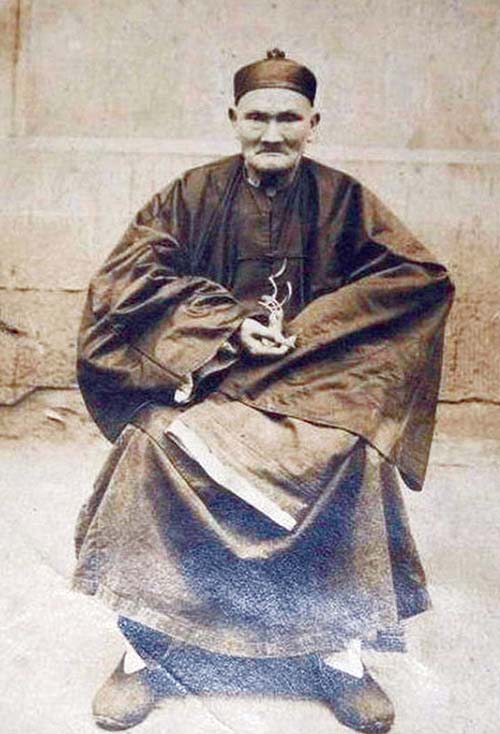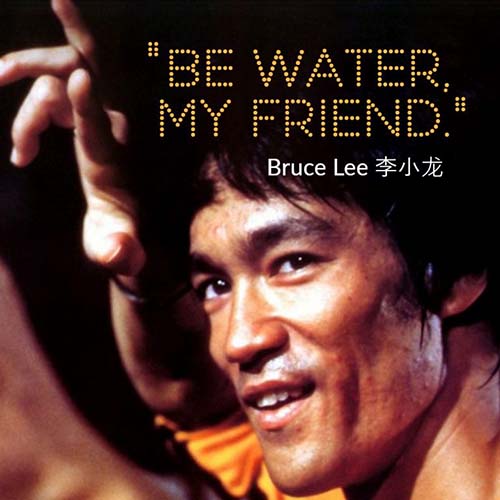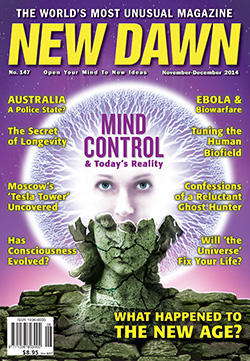From New Dawn 147 (Nov-Dec 2014)
Today, longevity is a hot topic. Sometimes it goes by other names such as anti-aging, cellular renewal, or regenerative medicine, but since it is a focus of current interest, there is money to be made. As a result, there are all types of pundits, whether MDs or Wellness coaches, plying their wares. Usually their ‘expertise’ ends up urging us to purchase a slew of supplements to slow down the aging process. This is not without good reason.
For example, resveratrol, an ingredient found in red wine, grape seed and grape skin extracts, is known to preserve that portion of the chromosome called the telomere, and in-so-doing stop degeneration of our DNA during cellular division. When telomere length is not degraded, any new cells produced are good quality copies of previous cells, which translates into our tissues not becoming structurally entropic. It is equivalent to maintaining a physiological Xerox machine, so that you only produce high quality photocopies of your original ‘documents’ (i.e. your cells).
Although the science of telomere preservation is important, and although combinations of specific supplements can be helpful in promoting longevity, I would like to take a deeper, more thoughtful approach in this essay since New Dawn readers are a special kind of audience with an appreciation for unusual ways of thinking. And the main difference between what I will present in this article and typical perspectives on longevity is that we need to consider not just the length but also the breadth of a human life.
As a clinician specialising in alternative medicine, I must deal with every type of human problem, whether it be physical, metabolic, immunological, psychological, or even spiritual. Our lives are cut short by negative factors, which may originate from outside ourselves or from within. Immunity, emotional equilibrium, structural alignment and metabolic hygiene all strongly influence an individual’s chances of a long, robust existence.

If we were able to minimise the effects of these negative factors, what would be the ‘normal’ length of a human life? Today, the figure of 120 years seems far from unreasonable. There are, in fact, historical records of people living way beyond that. Though it might seem hard to believe, Li Ching-Yuen, a Chinese man born in 1677 apparently endured to an extraordinary age, his life spanning the French Revolution, the American Declaration of Independence, the Russian Revolution and the First World War, with Li’s passing occurring quietly and without fanfare during the roaring twenties at the age of 256.
What was Li’s secret? Li wrote a brief treatise specifying his diet, exercise, specific herbal regimen, and sexual practices. Unfortunately, most of the herbs Li collected directly from the mountains where he lived are no longer available to us, and the stripped down world we inhabit today has drastically reduced springs of vitality it once offered. What then, practically speaking, can we distil from Li’s example? Suffice it to quote from one of Li’s students who summed up Li’s recipe as follows:
Keep a quiet heart, sit like a tortoise, walk sprightly like a pigeon and sleep like a dog.
In fact, there was more involved than this in Li’s longevity regimen. What he trained himself to do was align his every expenditure of life energy with the flows and rhythms of nature. Consider that every step we take, every mouthful of food we consume, every sexual fluid we release or every menstrual cycle we pass through involves a small but cumulative decrease in our total life energy, and the more so each act diverges from the innate ‘settings’ of nature. By consistently resetting the dial, by consistently avoiding excess expenditure and also by consistently replenishing outflows with net inflows, Li was able to accomplish his amazing feat.
In terms of modern biosciences and specifically anti-aging, is there a technical way of understanding this? The answer is yes. It comes down to two things: epigenetics and flow dynamics. In the field of epigenetics, we apply nutritional, behavioural or lifestyle changes in order to influence gene expression in a positive direction. In the field of flow dynamics, we beneficially modulate the bio-magnetic and bio-electrical systems of the body in order to enhance fluid circulation, detoxification at the cellular level, and revitalisation of our tissues and organs. Taken together, both of these approaches could be summed up as keeping the waters of the body clean and coherent.
Water, which composes 99% of the human body at a molecular level, is intrinsically coherent and life sustaining, but its coherency can easily be compromised by toxins, pathological microorganisms, EMFs, drugs, poor diet, poor posture and negative emotions. All of these end up affecting gene expression in a negative direction, and shortening the telomere, thus leading to premature aging or death.
In 1912, Alexis Carrel was awarded the Nobel Prize for Medicine. One of Carrel’s main topics of interest was cellular longevity. On 17 January 1912 he began a twenty year long experiment using an embryonic chicken heart which he was able to maintain fully alive into the 1930s, considerably beyond the normal lifespan of an adult chicken. He accomplished this by keeping the fluids in the petri dish clean and fresh. Although his experiment was never successfully replicated, and his thesis would later be repudiated in mainstream biology by the so-called Hayflick limit, Carrel’s work actually substantiates what Li-Ching Yuen was doing. If the fluids of the body are kept clean and fresh, longevity is enhanced.
“Be like flowing water,” said Bruce Lee, echoing the ageless advice of Lao Tzu in the Tao Te Ching. Flowing water is Life. Ever changing, ever refreshing itself, no drop in the river is ever the same, though its position is unaltered, as Heraclitus observed watching on the banks of that bright Greek river in the ancient sunlight.
And what are we composed of, if not mostly water? The cell (cytoplasm) is mostly water, the cells are bathed in an interstitial matrix, mostly water, the brain and spinal column are cushioned and massaged by cerebrospinal fluid, mostly water, the brain itself is over 80% water, and of course the fetus develops in a uterine ocean, rocked gently by the natural rhythms of the cosmos. Indeed, there is striking evidence that our paleo-anthropological forebears went through an aquatic phase, wading in the coastal waters. From my research I have concluded that this aquatic phase of our development has determined our profound physical and spiritual relationship with the fluid element, and the minerals and flow patterns it contains.
For example, iodine and magnesium, elements in which most of the world’s population are chronically deficient, come to us essentially from marine waters. Without adequate magnesium, our bodies cannot convert Vitamin D into its active form resulting in a degradation of our immunity, an increased porosity of our bone matrix and a foreshortening of our lives. Vitamin D is really metabolised energy from the Sun, and magnesium (plus iodine and a range of trace minerals) is metabolised energy from the sea. When fire and water, sun and ocean, feed into our bodies in harmony, a synergy is produced which sustains and prolongs human life.
Entering the Zone
To approach the question of longevity in a thoughtful way, we must first ask, what is time? According to special relativity theory, time is part of the dyad spacetime which, as we know, is curved because it is subject to gravitational forces. Under the impress of great masses, even cosmic light is forced to bend and so, when observed through powerful telescopes, distant stars and galaxies appear to us as ovals – it is as though their forms had been refracted through a giant wine glass.

But subjective or experiential time is even ‘curiouser’ to our commonsense assumptions than the mere fact macroscopic spacetime (and therefore what we think of as duration) can be warped by gravitational forces. Recent studies have demonstrated that the inner processing of sensory-cogitational signalling by insects is far more profuse and rapid than the human version. Research conducted at Trinity College Dublin in the Republic of Ireland has demonstrated the capacity of small creatures such as flies and mosquitoes to read flickering light at least four times faster than we do. This explains why it is so hard to kill them: a fruit fly, for example, nonchalantly eludes our clumsy attempts to dispatch it. It is as though it can read our thoughts in advance. We now know that the fly has a much faster “flicker fusion frequency” than we do, so for it, time is experienced as passing more slowly than for us. To a fly, our attacking hands move in ultra slow motion because their tiny brains are able to discern flickering light forms much more distinctly than we do. (To accomplish something comparable ourselves, we’d have to slow down a video into separate framed images).
In brief, the insects’ experience of time is slower, therefore longer at the microsecond level, than ours, more replete with genuine light-filled experience and reflective response than we who observe them. A humbling thought indeed: these swarming, often annoying and usually despised creatures are, at the experiential level, living more slowly, more fully, hence longer, relatively speaking, than homo sapiens.
How does this bizarre information relate to our personal pursuit of longevity? Let’s take a moment to dwell on the question of how we measure longevity. Is it to be seen just as a straight line from birth to death? Or should it be understood as a dynamic upward moving spiral? How does length (years) correlate with curvature (experience)?
Another curious phenomenon is that when we are truly immersed in something, especially something creative, we often lose all sense of linear time. Where did that time go when we were so deeply absorbed in the object of our attention, or the object of our affection? Stranger still, we often seem most deeply satisfied when we ‘lose’ ourselves in such things. Longevity, conventionally understood, implies an unbroken linear continuum extending from past into the future, yet lived life, especially in moments of deep immersion, strongly conflicts with this idea.
Yet again, when we are in ‘the zone’, we feel generally hyper-aware yet totally relaxed. Our senses are heightened, our reflexes are extremely attuned, and our powers of response greatly enhanced. In such states our sense of time is also radically changed. It is as though everything occurs simultaneously in some strange way, and we are able to process unlimited amounts of changing information with ease. We can read things with grace and speed. The ‘time’ we inhabit in such states can be compared to the super-processing capabilities of the fruit fly with its superior flicker frequency abilities. Were we able to spend more of our lives in these non-linear time modes, our longevity would be altered internally, at the phenomenological level of supra-consciousness. It would be comparable to the idea of travelling close to the speed of light and thereby slowing down the aging process.
What I have explored is how this spiralling of renewal and enrichment at the level of the mind also works at a cellular level, the level of the body. To arrive at real longevity (not mere numbers of years), we need to generate fresh, consciously renewed awareness of the present moment, and along with that, intertwining with it, a maintenance of our physical tissues with minimal degradation of DNA during ongoing cellular replication. Our goal must be the seamless renewal of thoughts and emotions at a conscious level in conjunction with undamaged renewal of cells and tissues at a somatic level.
Are You Present?
The essential, we have always been told, is to live in the present moment. If we are not there, then where are we? Are we, indeed anywhere at all? Does it matter if I attain a healthy old age if the range of my thoughts and feelings is not genuinely in tune with outer reality or, most important of all, with deep inner truth; worse still, what if I have allowed my streams of consciousness to have been manipulated by outside forces? If I am not in full possession of myself, can I claim my days and hours as my own or am I merely a ‘computer’ processing thoughtforms from elsewhere?
Interestingly, it appears that children are much more adept at discerning flicker frequency than adults, especially older adults. Could this be one reason why time seems to pass much more slowly for us when we are very young? Because it really is passing more slowly and therefore our childhood years occupy more of our total experiential time than the number of years they represent arithmetically?
This, although it might appear to be a strange question, is really a question about mapping. Consider, for example, how conventional two dimensional mapping of the globe distorts the physical size of landmasses such as Europe and Greenland, making them appear much larger than they actually are.
We have now stepped through the looking glass, but in today’s world we are also all being secretly looked at, watched over, and our private load of thoughts and emotions is increasingly made to percolate through external, flickering light pathways.
A World of Flickering Distractions
The French philosopher Paul Virilio has written graphically about a flickering world of light emanations bouncing off cathode ray tubes and coursing wildly through fibre-optic cables. Virilio’s warning is that people are in danger of getting lost in a virtual, electronically driven interactive world of synthetic communications. The embryonic phases of the Internet and IT have ushered us into a brave new world, as we are now witnessing with increasing frequency and alarm. How far and fast things have leapt into the technological abyss is shocking, and this has gone along with our general subjective sense that time is speeding up. Logically speaking, if time is speeding up, are not our lives thereby being experientially shortened?
ADD and ADHD have reached epidemic proportions in the contemporary developed world. Along with obesity and early-onset degenerative diseases including diabetes and cancer, distractability has become the new normal. Cloud computing has increasingly entranced the average person, and private information of all sorts is ‘dropped’ and stored online in virtual versions of two way mirrored rooms. Light emitting screens all flicker, whether they are TVs, computer monitors or smart phones. Dogs, like insects, are able to discern this flickering of light from such screens whereas we slow-witted humans are easily duped by the magic of projected imagery, no matter how contrived or toxic this imagery may be. Our incapacity to read flickering light as such makes us consume virtual information purveyed to us like a drug, and the more we do this, the more we are in danger of losing not just our privacy, but our very independence of mind.
We can conclude that the more distracted I am, the less I am in possession of myself. And the less in possession I am of myself, the shorter in real terms is my stay on this planet.
The Human Machine
In 1637, Rene Descartes published his famous Discourse on the Method, which presented the animal as a machine and the human being as almost a machine. With a self-protective nod to the Inquisition, Descartes had to publicly acknowledge the presence of a human soul interpenetrating the anatomical and physiological mechanisms via the pineal gland. A century or so later, in Man Machine which was published in 1748, Descartes’s compatriot Julien Offray de La Mettrie dispensed altogether with any need for a vestigial spiritual presence and presented man as pure machine. These were the heady days of the Enlightenment, and essentially all of what we encounter today, whether it be Hollywood Terminator movies or the Transhumanism movement, was founded by the intellectual drivers of that time. This was the conceptual platform that allowed both IT and cybernetics to emerge.
It is vital, for our purposes, to understand this very clearly indeed, because longevity is today a very fashionable subject in both medical and wellness circles, but is generally approached from a robotic perspective without this being consciously acknowledged. There are two undeclared goals:
- Preservation of the physical form, whether via surgical replacements, prosthetic devices, genetic modifications or other technical interventions.
- Preservation of the ego-entity by the downloading of this entity’s contents into a new vehicle, whether by cloning, revitalisation of decrepit tissues or other technical procedures and interventions.
Unsurprisingly, such a technological pursuit for individual immortality is very appealing to rich and powerful individuals or groups with control over resources and companies with scientific outreach. Ray Kurzweil is probably the main exponent of these concepts and ventures, but all of this derives directly from Enlightenment theories reducing the human being to a robotic essence. Today, such thinking is much in favour since technology advances with apparent exponential velocity.
If our essence is machine, the answer to our challenges, quite obviously would be through technology. But if our essence is more than machine, what then? What role can and should technology play in extending our lifespan? In what ways could a purely technological perspective ever lead to a qualitative enrichment of the present moment, and thus lengthen life from a subjective point of view?
According to Karl Popper, who formulated the empirical falsification principle underpinning the modern scientific method (a hypothesis is only verifiable to the extent that it can inherently be proven to be false), La Mettrie’s doctrine would provide an even sharper edge to the upcoming theory of evolution, and especially, I would add, to today’s neo-Darwinist creed. Popper, though a mainstay of the scientific mainstream, also cautioned that the consensual acceptance of La Mettrie’s concept by contemporary biologists, physicists and philosophers represents the human being as, in essence, a computer.
There is a clear continuum here between 18th century Enlightenment reduction of the human being to a machine and 21st century absorption of the human being into the computer, and thereby into the covert realms of manipulated consciousness.
Many people today wish desperately to escape from the matrix and the growing sense of asphyxiation it produces. There still remain a few spots on the planet which are relatively unchanged, though for how much longer, who can say? Let’s take a brief look at these and draw some further conclusions about longevity.
The Blue Zones
As a boy growing up in England I recall being fascinated by reports of people from the Caucasus who were apparently living beyond the age of a hundred and sixty. In 1984, I spent a year living in Western Turkey where I befriended a young woman named Selma whose family had emigrated from Turkic speaking regions of Central Asia. Selma told me how common it was for people in those areas to live up to one hundred and twenty. She also told me that people were not expected to act in mature ways until rather late in life. She had cousins who behaved, and were expected to behave, like teenagers, even in their mid-forties. The thought occurred to me: could it be that we age prematurely because we are expected to be too responsible too quickly?
After decades of working in the field of advanced holistic medicine, I have by now developed an ultra-refined ‘sixth’ sense of body-mind dynamics. What I can say without question is that longevity is as much attitudinal as biological. In other words, we have a chronological age, a biological age and an attitudinal age, and these three may each diverge widely from one another.
So where can we look around for viable models for long, healthy and happy lives?
In Dan Buettner’s best selling book, The Blue Zones, he explores five small geographical areas around the globe where the local inhabitants outlive people in developed Western nations by at least a decade; and perhaps even more importantly, they retain their vigour, vitality, strength, love of life and even their sexuality where their typical counterparts amongst us would probably be in wheelchairs, incontinent, perhaps lost in dementia or staring vacantly at TV sets. The five areas Buettner identified are Okinawa in Japan, the Greek island of Ikaria, Loma Linda in California, the Nicoya peninsula in Costa Rica, and Sardinia in Italy.
Not too long ago I read an article by an English journalist who went to Ikaria to investigate. He interviewed a small section of the local population. He first approaches a robust, white haired man sitting in a café high up in the hills, puffing away on a cigarette. The man’s name is Gregoris. The writer approaches Gregoris and informs him politely that smoking is bad for the health. Gregoris smiles and replies that he’s been smoking a pack a day for the past seventy years. He also drinks about four glasses of red wine a day. Gregoris is (at the time of that interview) already ninety-nine years old. His story is not uncommon. Most Ikarian males between the ages of 65 and 88 report having sex with “good duration” and “achievement” and a few of these continue to do so even into their nineties. Soon he encounters ninety-nine year old Evangelia Karnava, a small strong woman who radiates energy. When asked her secret, she declares, “Coca Cola. I can’t live without it.” She plans, she says, on living to the age of 115, and who would doubt her?
What, no expensive supplements or life extension products in fancy bottles? Instead, Coca-Cola, lots of wine, cigarettes? Are these the Secrets of Longevity? Of course not, but these Blue Zone inhabitants prove to us that a long life is not attained by textbook purity, nor by striving to be too healthy. Nor is it reducible to diet and hygiene. Ironically, what the average well-intentioned naturopathic doctor orders you to consume (or not consume) might in fact upset your equilibrium and shorten your lifespan – as well make your life less fun. It is vitally important to be free, to have fun and to break the rules. Conclusion: attitude ultimately overrules political correctness in diet and behaviour.
So what are the other basics we can extrapolate from the long, full and vital lives of people living in these sun-drenched environments? For simplicity’s sake, I will list them here:
- A healthy local based diet. People eat fresh, locally grown, organic or wild-crafted foods. For example, the wines and herbal teas drunk in Ikaria and Sardinia are filled with the vital energies of place, and local greens have exceptionally high levels of antioxidants. There is an unbroken continuum between the mineral and vegetal life-forces of the region and the human inhabitants who have learned how to distil these forces.
- A strong sense of community and shared values, festivals and celebrations. Avoidance of loneliness, depression, self-absorption and depression.
- Laughter and good humour.
- Plenty of good quality sleep, and perhaps also naps during the day.
- Rising early.
- Minimal use of drugs or any synthetic foodstuffs.
- Minimal exposure to WiFi and electromagnetic pollutants.
- Minimal exposure to ‘doctored’ news sources or infotainment.
- A great deal of time spent in the open air.
- A light hearted and courageous approach, a fluid, bright form of stoicism.
- Respect, love and inclusion for the elderly whose value is never put into question. To squirrel them away into a ‘home’ would bring shame on the family.
- Sunshine and proximity to flowing water.
- Daily aerobic exercise. It is not at all uncommon for nonagenarians to walk three or more cliff miles each day.
- A sense of purpose in each of the activities you are engaged in.
- No excess calorie intake and low use of refined sugar. (Burn your fuel before you re-fuel.)
- High intake of omega 3s, iodine and trace minerals from the ocean.
- Simplicity and gratitude. Lack of guilt, greed or shame.
The Grey Zones
The Blue Zone people, and the inhabitants of other areas where people live simple lives and have access to sunshine, clean air, water and life-force have much to teach us. But the truth is that most of us do not, and cannot, live in such pristine, simple environments, nor can we easily generate around ourselves the sorts of protective communities produced historically by these areas. We are the inhabitants of the Grey Zones, struggling to survive in heavily polluted environments, controlled by corporate mis-management of the food chain, beset with worries and anxieties and almost drowning in information overwhelm. Not to mention the effects of electromagnetic pollution, chemtrails and mind control initiatives: it is a sad fact that modern humans need to use enormous amounts of energy simply in order to retain their basic healthy functioning. Moreover, if we try to retain integrity in a complex and corrupt geo-political environment, we must also focus on staying awake, which only creates further demands and stressors acting upon our fragile life-force. So what to do?
Besides trying to replicate, as much as possible, the conditions and behaviours of the Blue Zone inhabitants, in the Grey Zones we can still re-calibrate our life force through epigenetics and energetic adjustments. This re-calibration work is what we offer at my clinic and also during my workshops and trainings. It involves what I call the Infinite Body System and it incorporates a repertoire of vertical, spiral and other flowing movements all of which help to reintegrate the mind into the body and also to make our fluids run clean and fresh, just as Bruce Lee and Lao Tzu recommended.
How long we live is partly a matter of chance and partly of choice, but most importantly, both length and breadth of our lives will depend upon what we live for. Living with purpose and in pursuit of meaning is both our right and our responsibility. The priority, echoing Viktor Frankl, is to listen to what Life asks of us. Our response to that last question will ultimately determine how long we are here, and whether our stay will have been a narrow one, or great and broad as an estuary tipping gracefully into the sea.
Nicholas Corrin is the author of The Power of Letting Go, a comprehensive study of self-healing, meditation, and our personal place in the cosmos. Signed copies are available direct from the author through www.nicholascorrin.com or look it up on www.amazon.com.
© New Dawn Magazine and the respective author.
For our reproduction notice, click here.




